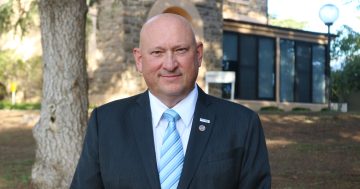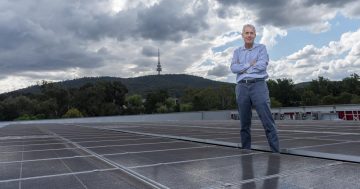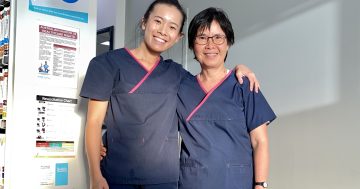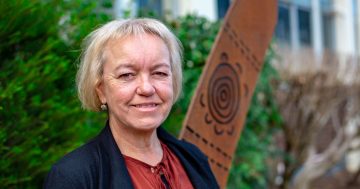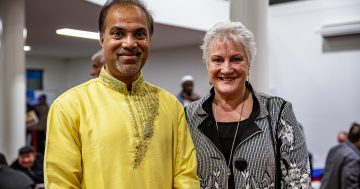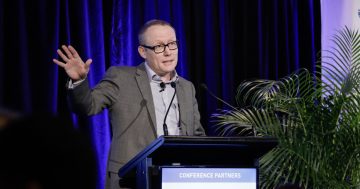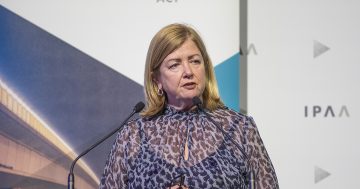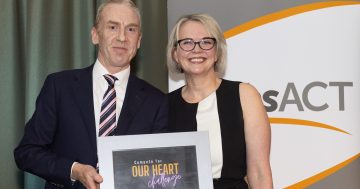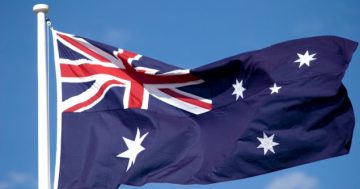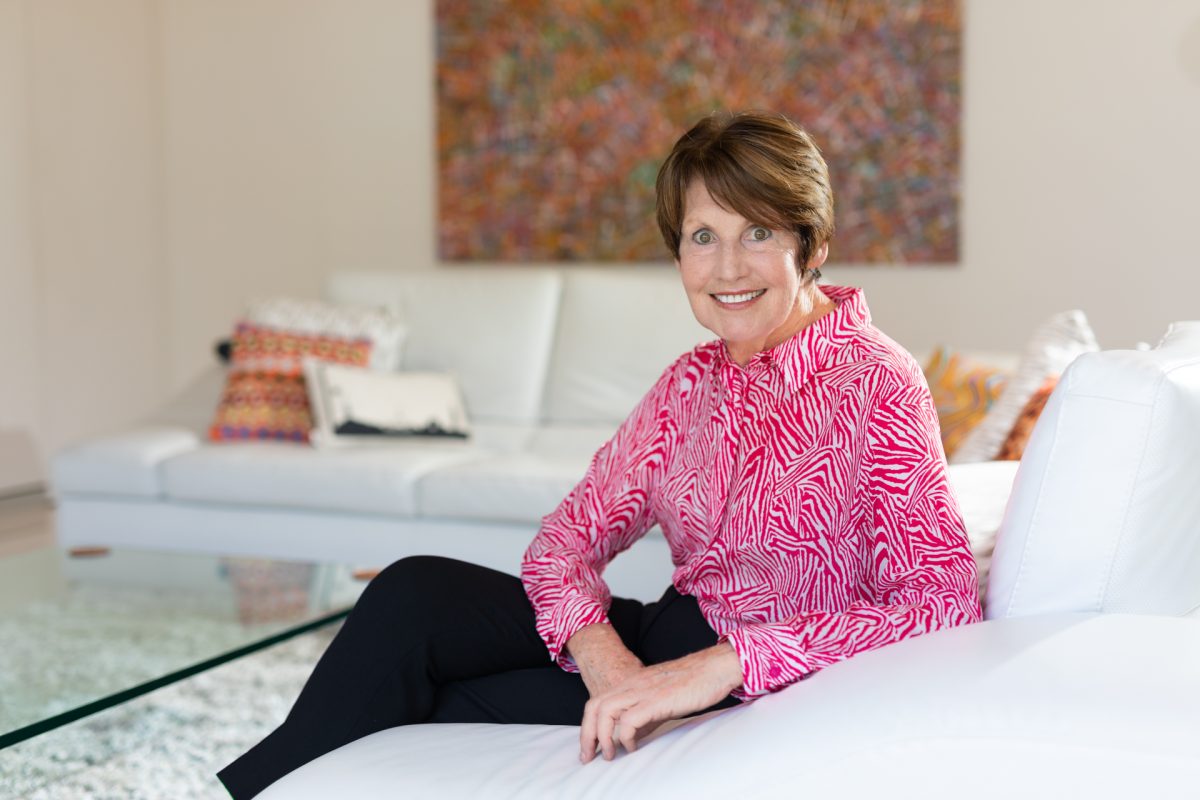
Glenys Beauchamp: “I don’t see it as an individual award really, because there is a team of people always with you.” Photo: Michelle Kroll.
A quiet trailblazer at the top of the Australian Public Service has been recognised in today’s Australia Day Honours.
A former secretary of three departments, Glenys Beauchamp joins Canberra’s finest in a list of Australians being acknowledged for their contributions across the spectrum of human endeavour.
Never one to seek a high profile, Ms Beauchamp nevertheless was one of the first women to rise to the top of the APS and has been recognised for distinguished service to public administration, particularly innovative health reform, industry and science policy, and program delivery.
She is currently chair of Food Standards Australia and New Zealand, and also chairs the advisory board for Region, which publishes Riotact.
Ms Beauchamp, who was made an Officer in the Order of Australia (AO), said she was grateful for the support of mentors and the teams she led, and it was great to receive acknowledgment on behalf of them.
“I don’t see it as an individual award really because there is a team of people always with you,” she said.
Ms Beauchamp said the public service had changed over the course of her career, with a focus now on diversity and gender in recruitment practices that had opened up opportunities for more people no matter their background.
There had also been a change in leadership approach, resulting in more women on the Secretaries Board.
She encouraged aspiring public servants not to shy away from challenges.
“I had a couple of secretaries and key leaders that gave me some fantastic opportunities, and they were probably opportunities where I had that mindset, no I couldn’t do that, and yet I thrived,” Ms Beauchamp said.
The award was also good for the public service, which along with government, had suffered a loss of public trust in recent times.
“Rebuilding that trust and getting acknowledgment as a public servant that you can actually make a difference and that these opportunities are there for everyone and it doesn’t matter what sort of background you have, that’s a real achievement I see, that anyone aspiring to be a fantastic public servant could become a leader,” Ms Beauchamp said.
Another woman trailblazer is former international rugby league player Katrina Fanning who has long been involved in Indigenous and community organisations in Canberra.
She also was made an Officer in the Order of Australia.
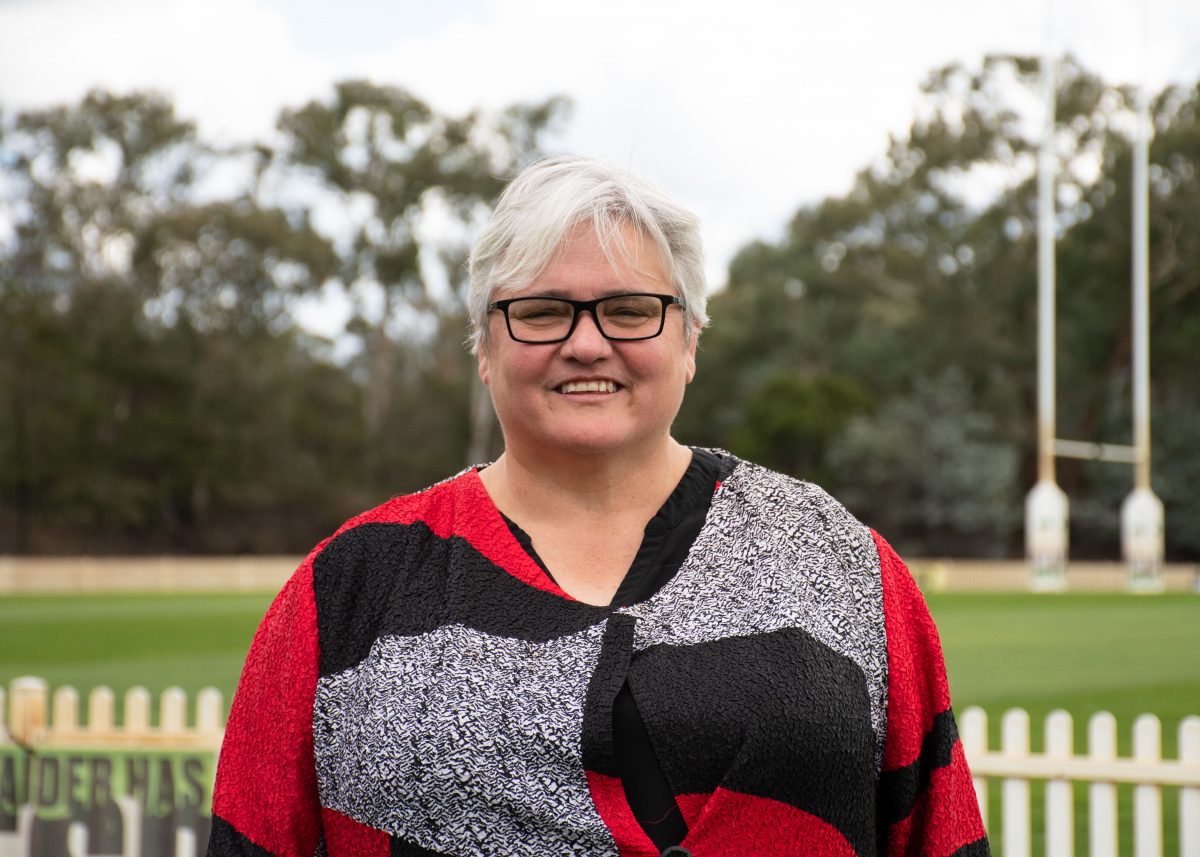
Katrina Fanning: “These sorts of awards show what we’re able to do for ourselves.” Photo: File.
Ms Fanning, a Wiradjuri woman, was recognised for her distinguished service to the Indigenous community through education and health initiatives, and to sport.
Despite the controversy swirling around the date of Australia Day, Ms Fanning said it was better for Indigenous people to be visible in awards such as these rather than rejecting them.
“Knowing that it’s on Australia Day, it’s not so much about not accepting it, but how to, I guess, use it as an opportunity,” she said.
“I think that if in the award system if Aboriginal and Torres Strait Islander people are totally absent, then it just takes away an opportunity for us to tell people about our achievements and successes to the broader Australian public, and if we don’t do that, then that reinforces some of the not-so-positive stereotypes that exist.
“These sorts of awards show what we’re able to do for ourselves.”
Ms Fanning said no matter what date the day is on, it should have an Indigenous component and be a time to reflect on 60,000 years of history, as well as the past 250 years.
“We need to have those conversations in this country and to not be absent from such important days,” she said.
Ms Fanning said the date was problematic but more important was how it was structured so it could be more celebratory and forward-looking.
An active member of the referendum engagement group, she supports the Voice to Parliament. She sees it as a way for Indigenous people to be more a part of decision-making to achieve better outcomes, particularly at a local level.
Ms Fanning said she would share the award with her large extended family, particularly some of her older relatives who sacrificed a lot for her generation to be able to have opportunities and make the most of them.
“I don’t think there’s much I do that’s one out,” she said.
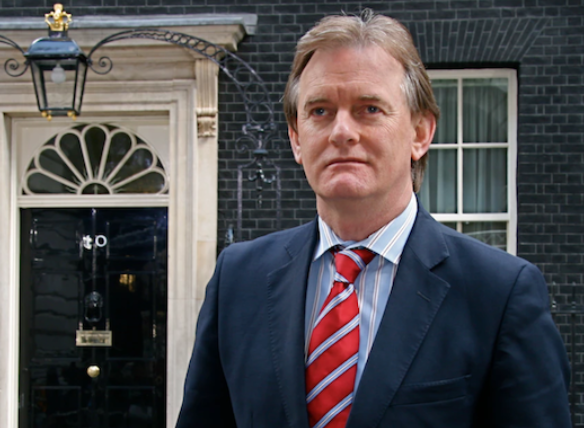
Foreign correspondent Phillip Williams: Black Summer fires were a tough assignment. Photo: ABC.
Veteran ABC foreign correspondent Phillip Williams, who tried to retire but was hauled from his winery at Wallaroo to cover the Ukraine war and the death of the Queen, has been made a Member of the Order of Australia (AM).
Mr Williams said it was a pleasant surprise and an acknowledgment of the national broadcaster and the important role it fills in Australia.
“I would not be getting this award without the ABC, that’s for sure,” he said.
“All of my work has been with the ABC pretty well, and all my colleagues who’ve supported me made me the journalist I am for better or worse, and all people who have come before me have made that.
“I feel extremely lucky to work for so long for that incredible organisation.”
Mr Williams has covered wars and natural disasters across the globe, but reporting on the Black Summer fires at home left a deeper mark on him.
“That was a very dramatic and heart-wrenching story to cover because it’s in your backyard,” he said.
“It’s so much tougher because you’re dealing with people you know, their families. So it’s much more dramatic and can have a much deeper effect on you because you’re not removed from that as you would be in a city environment.
“You’re out there, you’re on your own and you know these people. That’s much tougher.”
Deputy Chief Medical Officer Dr Sonya Bennett was made a Member (AM) for significant service to public health in leadership roles.
Barbara Baikie’s service to women’s affairs, and to the community was recognised with a Medal (OAM).
Arts writer and dance critic Michelle Potter was made a Member (AM) for significant service to the performing arts.
Also recognised for service to the performing arts was former manager of wardrobe at Canberra Repertory Theatre Jeanette Brown with a Medal (OAM).
Canberra writer Geoffrey Page also received a Medal (OAM) for service to literature as a poet.
Radford College principal since 2014 Fiona Godfrey was recognised for her service to primary and secondary education with a Medal (OAM).
In academia, Dean of the College of Science at the ANU Professor Kiaran Kirk was made a Member (AM) for significant service to science education and research, and to professional organisations.
The list of Canberra region recipients:
Officer (AO) in the General Division of the Order of Australia
- Glenys BEAUCHAMP PSM, for distinguished service to public administration, particularly innovative health reform, industry and science policy, and program delivery.
- Distinguished Professor Matthew Malcolm COLLESS, Director, ANU Research School of Astronomy and Astrophysics, for distinguished service to scientific research, particularly to astronomy and astrophysics, and to professional societies.
- Katrina FANNING PSM, for distinguished service to the Indigenous community through education and health initiatives, and to sport.
- Robin GEHLING, for distinguished service to the maritime transport and safety industries, and to naval architecture.
- Gregory James HOOD, for distinguished service to the national transportation and aviation industries, and to the not-for-profit sector.
- Peter JENNINGS PSM, for distinguished service to the development of strategic and international policy, and to public affairs.
Member (AM) in the General Division of the Order of Australia
- Dr John Francis ANGUS, for significant service to the agricultural sector through research roles, and to education.
- Lucinda Jane BARRY, CEO of the Australian Organ and Tissue Donation and Transplantation Authority for significant service to public health policy in executive roles, and to medicine.
- Dr Sonya Maree BENNETT, Deputy Chief Medical Officer, for significant service to public health in leadership roles.
- Dr Trina GREGORY, for significant service to general practice medicine.
- Professor Kiaran KIRK, Dean of the ANU College of Science, for significant service to science education and research, and to professional organisations.
- Dr Michelle POTTER, for significant service to the performing arts in a range of roles.
- Dr Michael TEDESCHI, for significant service to medicine, particularly to people with drug and alcohol dependency.
- David TEMPLEMAN, for significant service to community health administration and governance.
- Philip WILLIAMS, for significant service to the broadcast media as a presenter and journalist.
Medal (OAM) in the General Division of the Order of Australia
- Barbara BAIKIE, for service to women’s affairs, and to the community.
- Margaret BENNETT, Chief Executive, Southern New South Wales Local Health District, for service to medical administration.
- Jeanette BROWN, Canberra Repertory Society, for service to the performing arts.
- Laura BUNYAN, for service to community history.
- Dianne DOWLING, for service to community history.
- Dr Peter DOWLING, National Trust of Australia (ACT) Vice President, for service to community history.
- Gillian Kathleen FRANCIS, for service to community history.
- Dr Charlotte GALLOWAY, Honorary Associate Professor, ANU Research School of Humanities and the Arts, for service to education, and to history.
- Fiona GODFREY, Principal, Radford College, for service to primary and secondary education.
- Philip Andrew GREENWOOD, for service to the not-for-profit sector, and to the community.
- Kerrie GRIFFIN, for service to community health.
- Michael LEE, Principal, St Mary MacKillop College, for service to education.
- Sarah McGORAM, for service to community health.
- Deborah MASLING, for service to secondary music education.
- Allan Linden MOORE, for service to international relations.
- Narelle O’ROURKE, for service to the preservation of nursing history.
- Geoffrey Donald PAGE, for service to literature as a poet.
- Glenn ROFF, for service to education.
- Barbara RUGENDYKE, for service to children as a foster carer.
- David RUGENDYKE, for service to the community and to children.
- Garth SETCHELL, for service to the community through a range of roles.
- Carmel WEATHERBURN, for service to netball.
- The late Ms Connee-Colleen, for service to the community of Queanbeyan.












